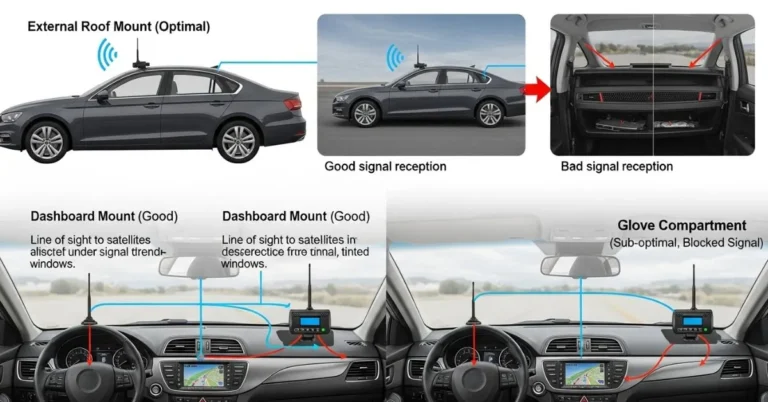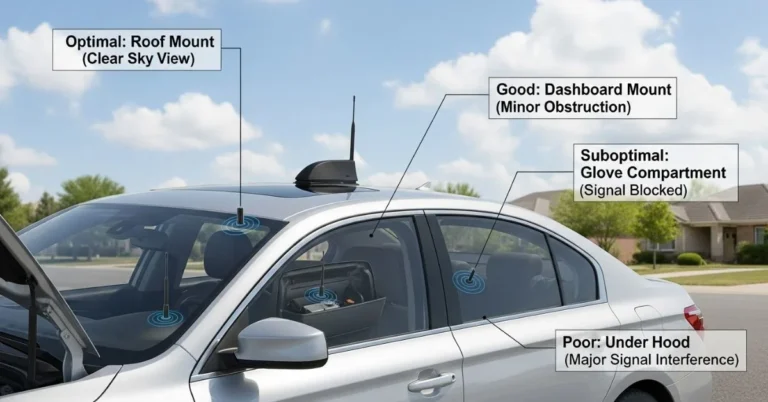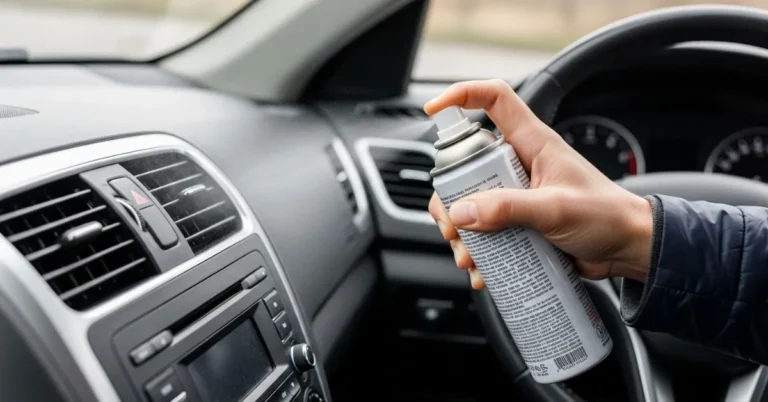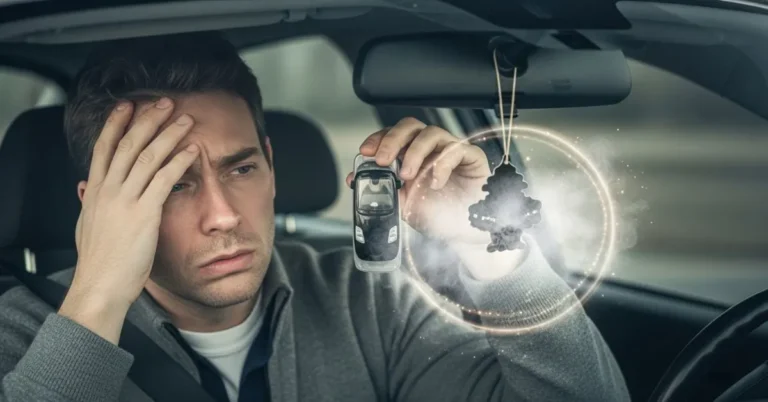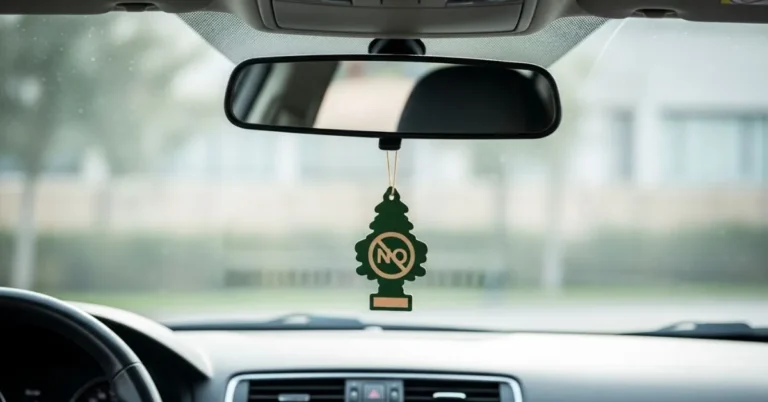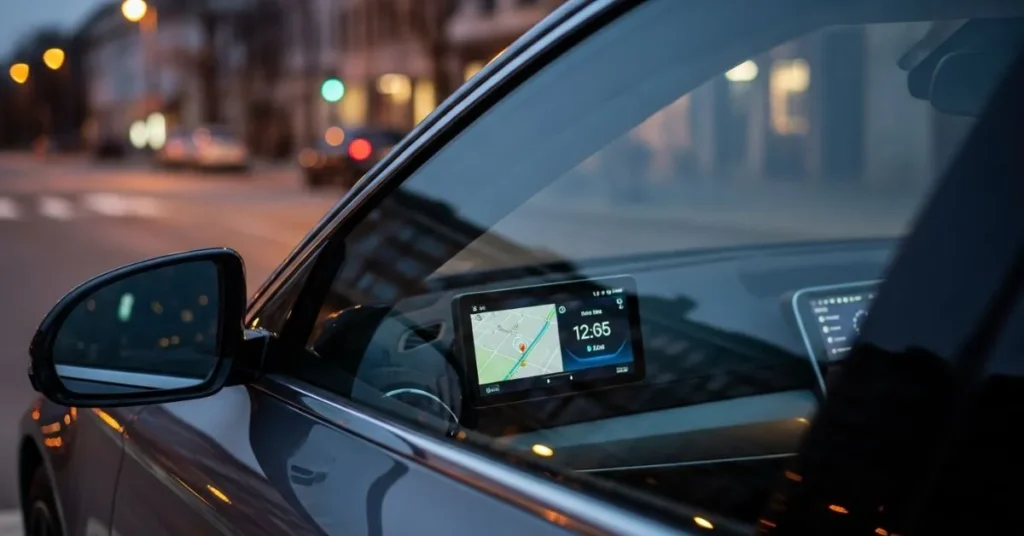
Do all cars have GPS trackers these days? Imagine this: You’re cruising down the freeway, latte in one hand (not while driving, of course), and your favorite podcast filling the cabin. Then it hits you” Wait… is someone tracking me?” That single thought spirals into a full-on internal monologue. Who’s watching me? The government? The dealership? My overly curious neighbor?
Welcome to the modern-day auto-tech dilemma, where privacy, safety, and convenience compete for your attention. Whether buying a new ride, renting a vehicle, or just having a paranoid Tuesday, it’s a question worth unpacking. Spoiler alert: the answer isn’t a simple yes or no.
Let’s shift gears and break it all down.
Contents
- 1 What Exactly Is a GPS Tracker?
- 1.1 Do All Cars Have GPS Trackers Installed by Default?
- 1.2 GPS Navigation vs. Active GPS Tracking
- 1.3 Cars That Typically Come with GPS Trackers
- 1.4 Who Installs GPS Trackers And Why?
- 1.5 Why Would a Car Have a GPS Tracker in the First Place?
- 1.6 Are There Privacy Issues with Built-In Trackers?
- 1.7 Can You Disable or Remove a GPS Tracker?
- 1.8 How Can I Tell If My Car Has a GPS Tracker?
- 1.9 Are Rental Cars and Used Cars Pre-Tracked?
- 1.10 Legalities of GPS Trackers: What You Need to Know
- 1.11 FAQs About GPS Trackers in Cars
- 1.12 Expert Thoughts: Are We Being Watched?
- 1.13 About the Author
What Exactly Is a GPS Tracker?
Before answering, do all cars have GPS trackers? We need to understand what a GPS tracker even is. A GPS (Global Positioning System) tracker is a small electronic device communicating with satellites to determine a precise location. It can either:
- Store location data (passive tracker), or
- Transmit real-time location data (active tracker).
These devices are commonly used for navigation, theft recovery, fleet management, and even monitoring teen drivers. The key difference is whether the data stays in the car or gets shared somewhere else.
Do All Cars Have GPS Trackers Installed by Default?
Here’s the truth: Not all cars have GPS trackers installed by default.
However, the line between a GPS-enabled vehicle and one with an actual GPS tracker is getting blurrier. Most cars manufactured in the last decade, especially after 2015, come equipped with GPS capabilities, meaning they can determine their location. That doesn’t mean they’re constantly broadcasting it.
Here’s a good analogy: Having GPS in your car is like owning a phone with a camera. It doesn’t mean the camera is always recording, but it can under the right conditions (apps, connections, settings).
Let’s separate two commonly confused features:
- GPS Navigation: These systems help drivers with turn-by-turn directions. They receive satellite signals to guide you, but don’t necessarily send your location to a third party.
- GPS Tracking: These devices or services transmit your location to someone else think fleet managers, rental companies, or app providers.
A vehicle might have built-in navigation but no tracker. In contrast, a car with a connected service plan might have full GPS tracking capabilities, which can be activated remotely.
So, if you’re still wondering if all cars have GPS trackers, think of it this way: GPS is common. GPS tracking is conditional.
Cars That Typically Come with GPS Trackers
Some categories of vehicles are far more likely to include default GPS trackers:
- Rental Cars: Many rental agencies install GPS trackers to monitor usage, enforce boundaries, and prevent theft.
- Fleet Vehicles: Delivery vans, taxis, rideshares, and corporate cars often have trackers for operational efficiency.
- Luxury & High-Tech Vehicles: Brands like BMW, Tesla, and Mercedes often include GPS tracking in their connected service packages.
- Electric Vehicles (EVs): These are packed with smart features, including remote monitoring, charging status updates, and, yes, real-time location tracking.
These trackers often exist not for surveillance but for functionality. Still, car owners and drivers should be aware of this.
Read More: How to Find a GPS Tracking Device on Your Car: Expert Tips
Who Installs GPS Trackers And Why?
Let’s look at the groups responsible for installing GPS trackers in vehicles:
- Auto Manufacturers: For in-car services like emergency assistance, stolen vehicle recovery, and live diagnostics.
- Dealerships: Some install trackers as part of theft-prevention or finance agreements.
- Rental Companies: Used for geofencing, tracking mileage, and asset protection.
- Fleet Owners: To monitor vehicle routes, fuel efficiency, and driver behavior.
- Car Owners: Parents may want to monitor teens; businesses may wish to monitor employees.
- Insurance Companies: Some offer discounts for drivers who install GPS trackers with safe-driving programs.
Each has a unique motive, from cost savings to safety and legal compliance.
Why Would a Car Have a GPS Tracker in the First Place?
Great question! Here are the most common reasons:
- Theft Prevention & Recovery: A GPS tracker can help locate and recover a stolen vehicle within hours.
- Teen Driver Monitoring: Parents can receive alerts about speeding, location, or curfew violations.
- Insurance Benefits: Usage-based insurance programs often require trackers.
- Remote Diagnostics: Some trackers send alerts if a check engine light comes on or maintenance is needed.
- Trip History & Fleet Optimization: Businesses can track routes and time efficiency.
So, even if not all cars have GPS trackers by default, there’s growing demand and utility for them.
Are There Privacy Issues with Built-In Trackers?
Oh, absolutely. The biggest concern? Most people don’t even know what data is being collected, or who it’s being shared with.
- Who Owns Your Data? Is it you, the carmaker, or the app provider?
- Are You Being Watched? Some systems collect data even when you’re not using them.
- Is It Secure? Hackers can access vulnerable systems.
- Did You Consent? Many people skip the terms-of-service screen without realizing what they’ve agreed to.
In short, if you value privacy, review your vehicle’s connected services settings and data-sharing permissions.
Can You Disable or Remove a GPS Tracker?
You can in many cases, but how easy that is depends on the type of tracker:
- Aftermarket GPS Trackers: These are often plugged into the OBD-II port. Simply unplugging them turns off tracking.
- Hidden Trackers: Some are hardwired and hidden by previous owners or dealerships. A mechanic or GPS detector can help locate them.
- Factory-Installed Units: These are deeply integrated into the vehicle’s systems and hard to remove without affecting other features.
Warning: Removing a tracker installed by a dealership or insurer may violate your agreement or warranty.
How Can I Tell If My Car Has a GPS Tracker?
Whether you just bought a used car or you’re simply curious, here’s how to find out:
- Inspect the OBD-II Port: Located under the dashboard, a common spot for plug-in trackers.
- Check the Undercarriage: Magnetic trackers are often hidden under the car.
- Use a GPS Detector: These tools can scan for active signals.
- Review the Infotainment Settings: Look for telematics or connected services.
- Ask the Dealer or Manufacturer: Provide the VIN for a feature breakdown.
Still unsure? A professional inspection can help you be certain.
Are Rental Cars and Used Cars Pre-Tracked?
In most cases, yes:
- Rental Cars: These almost always come with GPS trackers standard practice for security and inventory.
- Used Cars: They might have leftover GPS devices installed by the previous owner or dealer. The odds are higher if the vehicle was a fleet or rental car in its past life.
Be sure to review the paperwork or ask the dealership directly.
Legalities of GPS Trackers: What You Need to Know
You can’t just slap a tracker on someone else’s car and call it a day laws are involved.
- It’s Legal to Track Your Car: Whether it’s for theft recovery or teen safety.
- It’s Illegal to Track Someone Else Without Consent: This includes spouses, employees, or strangers.
- Disclosure Required: Rental and company vehicles must disclose GPS usage in contracts.
- State Laws Vary: Some states have stricter surveillance regulations than others.
Here’s a rewritten version with a smooth, reader-friendly tone:
It’s smart to check with a legal expert before adding or removing anything.
Let me know if you want a more casual or authoritative version!
Read More: How to Disconnect GPS Tracker Quickly: Tools, Tips & Tricks
FAQs About GPS Trackers in Cars
1. Do all cars in the USA have GPS trackers by default?
No. While many modern cars have GPS navigation, not all have active GPS trackers installed by default.
2. Can I remove a GPS tracker from my car?
Yes, especially if it’s aftermarket. Factory-installed units are more difficult and may impact functionality.
3. Do GPS trackers need internet?
They use satellites for positioning, but usually require cellular service to send real-time data.
4. Is it legal to track someone using GPS?
Only if you own the vehicle or have consent can unauthorized tracking result in legal penalties.
5. How can I check if my car has a GPS tracker?
Use a detector, inspect the OBD-II port, or contact the dealership for a complete feature list.
Expert Thoughts: Are We Being Watched?
So, back to the original question: Do all cars have GPS trackers installed by default? Not yet, but we’re getting close. With the rise of smart cars, subscription services, and real-time apps, GPS tracking is becoming the norm rather than the exception.
For some, this spells safety and convenience. For others, it’s a ticking privacy time bomb. The key is knowing your stuff ask the right questions when buying a car and stay in control of the data your vehicle might be sharing. Whether you’re a cautious consumer, an aspiring spy, or just tech-curious, one thing’s for sure: the road to understanding GPS in cars isn’t just about satellites it’s about knowing who’s watching the road with you.

